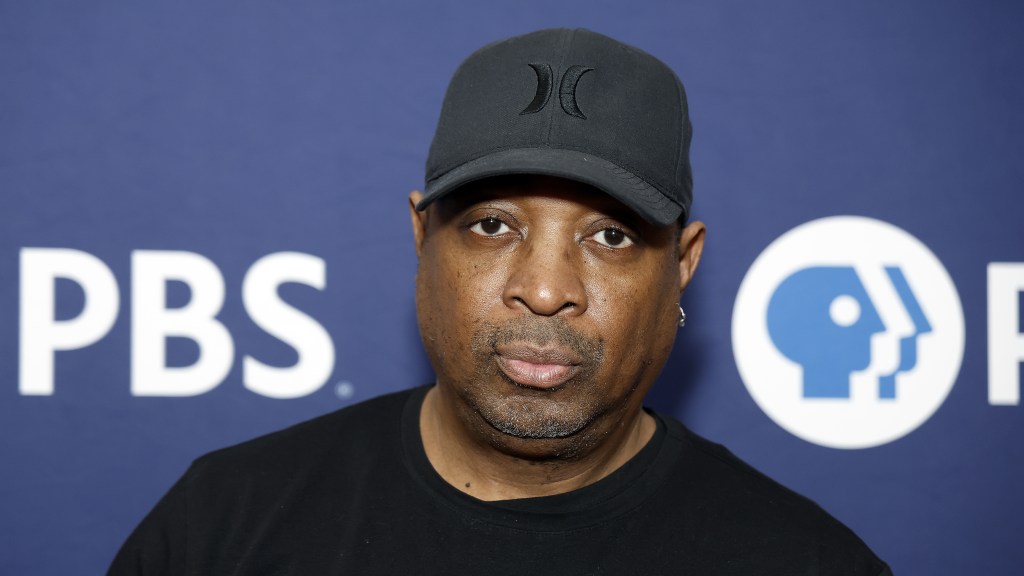Chuck D Calls for Reflection on ‘Burn Hollywood Burn’
In a time when social media is awash with videos depicting the devastating wildfires in California, hip-hop legend Chuck D has stepped forward to critique the use of Public Enemy’s iconic track “Burn Hollywood Burn”. His recent statement urges audiences to engage with the song’s deeper historical context, prompting a re-evaluation of how art interacts with current events. Chuck D’s comments shine a light on the intersection of art, activism, and the realities of contemporary issues, challenging listeners to consider the implications of their interpretations.
The Context of ‘Burn Hollywood Burn’
Released in 1990 as part of Public Enemy’s critically acclaimed album *Fear of a Black Planet*, “Burn Hollywood Burn” is a powerful indictment of the entertainment industry’s misrepresentation of African Americans. The track critiques Hollywood’s tendency to perpetuate stereotypes while also calling for a reevaluation of the narratives that dominate mainstream media. Chuck D’s lyrics serve as a rallying cry for those who feel marginalized or misrepresented, making the song an anthem for social justice.
In light of recent events, particularly the wildfires that have ravaged California, some have taken to social media to pair visuals of the fires with the song. While the intention might be to draw attention to the chaos and destruction, Chuck D argues that doing so without context may dilute the song’s original message and purpose.
Chuck D’s Critique
Chuck D’s commentary on the use of “Burn Hollywood Burn” in wildfire videos emphasizes the need for reflection on the song’s significance and its roots in activism. He argues that the song was never meant to trivialize suffering or destruction. Instead, it was crafted to provoke thought about systemic issues facing the Black community and the media’s role in shaping perceptions.
In his statements, Chuck D highlights several key points:
- Historical Context: The song emerged during a time of heightened racial tensions and calls for justice. Using it in a different context risks overlooking its historical significance.
- Misinterpretation: Many listeners may misinterpret the song’s intent when paired with visuals of natural disaster, potentially overshadowing its critique of racial injustice.
- Art and Responsibility: Artists have a responsibility to ensure their work is interpreted in a way that honors its original intent, especially in politically charged times.
The Intersection of Art and Activism
The relationship between art and activism has always been complex. Throughout history, artists have used their platforms to address social issues, provoke thought, and inspire change. Chuck D, as a pioneering figure in hip-hop, has often emphasized the power of music as a tool for social commentary.
In the case of “Burn Hollywood Burn”, the song serves as a reminder of the ongoing struggles faced by marginalized communities. By drawing parallels between the song’s message and contemporary issues like climate change and the consequences of systemic neglect, Chuck D encourages a broader conversation about the role of media in shaping narratives.
Understanding the Contemporary Wildfire Crisis
The wildfires in California are not just natural disasters; they are also a reflection of broader systemic issues such as climate change, land management, and socio-economic disparities. As these wildfires become more frequent and intense, it is essential to consider how they are depicted in media and art.
Using “Burn Hollywood Burn” in videos about wildfires may inadvertently reinforce the idea that such disasters are merely spectacles rather than crises that require urgent action and understanding. Chuck D’s call for reflection urges audiences to move beyond sensationalism and engage with the deeper implications of their interpretations.
The Power of Reflection
Reflection is a powerful tool that can lead to greater understanding and empathy. Chuck D’s critique serves as a reminder that art has the potential to inspire dialogue, foster awareness, and encourage activism. By reflecting on the historical context of “Burn Hollywood Burn”, listeners are invited to consider not just the surface-level connections but also the underlying issues that the song and the contemporary crises represent.
Engaging with this reflection can lead to positive outcomes, such as:
- Increased Awareness: Understanding the historical significance of a song can enhance its relevance in contemporary discussions.
- Empathy Development: Engaging with the struggles faced by others can foster a sense of empathy and solidarity.
- Informed Activism: Knowledge of historical and social contexts can empower individuals to become more informed activists and advocates for change.
Conclusion: A Call to Action
Chuck D’s reflections on “Burn Hollywood Burn” amid the wildfire controversy serve as a crucial reminder of the importance of context in art and activism. As listeners, we must strive to engage deeply with the works we consume, considering not just their immediate impact but also their historical and social implications.
In a world that often prioritizes sensationalism over substance, it is vital to remember that art can serve as a powerful vehicle for change. By reflecting on the messages embedded within songs like “Burn Hollywood Burn”, we can honor the legacy of artists like Chuck D and harness the power of music to advocate for justice and understanding in our communities.
As we navigate these complex issues, let us heed Chuck D’s call for reflection and work towards a more informed and compassionate society.
See more CNET Live

